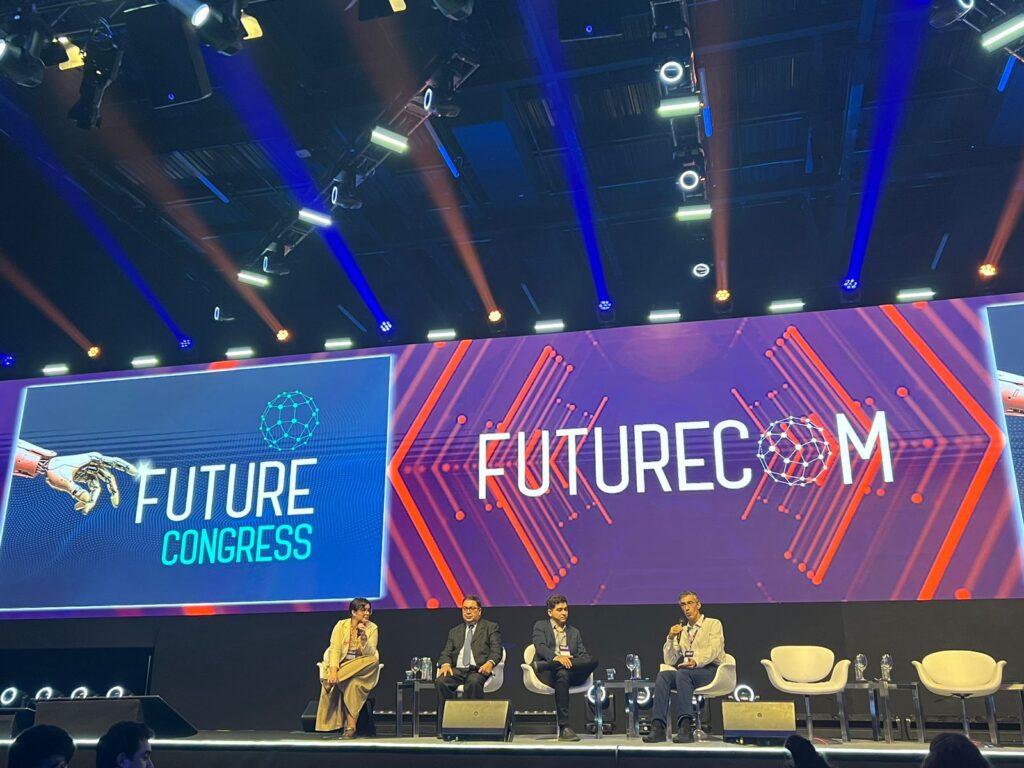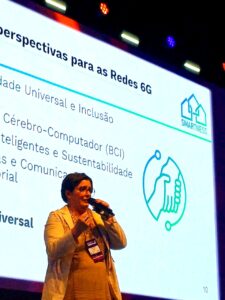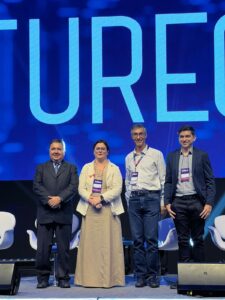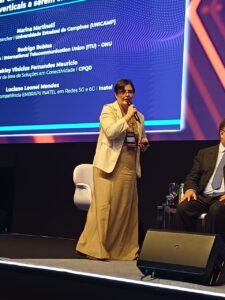Marina Martinelli, a PhD researcher from the Engineering Research Center SMARTNESS 2030 at UNICAMP, recently participated as a speaker and mediator at Futurecom, Latin America’s most significant technology and telecommunications event. In her presentation, she highlighted the transformative potential of 6G technology, emphasizing its role in revolutionizing not just faster internet speeds, but also sectors like telemedicine, autonomous vehicles, and immersive communication technologies such as Augmented Reality (AR) and Virtual Reality (VR). Marina stressed that 6G represents a fundamental shift in technological systems that will impact various industries and daily life.
During the panel, experts such as Rodrigo Robles from the International Telecommunication Union, Prof. Luciano Mendes from Inatel, and Weskley Maurício from CPQD discussed the importance of digital inclusion, mainly through infrastructures like low-orbit satellites and relay drones, which 6G promises to deliver. Marina underscored how these innovations could bridge connectivity gaps in rural and remote areas, providing critical services like education and healthcare to underserved populations. The panel concluded by emphasizing the role of 6G in driving smart cities, sustainable development, and the integration of quantum networks, all while advocating for an inclusive digital transformation in Brazil through standardization, such as proposed recently by ITU in 2024 in its new recommendations.










